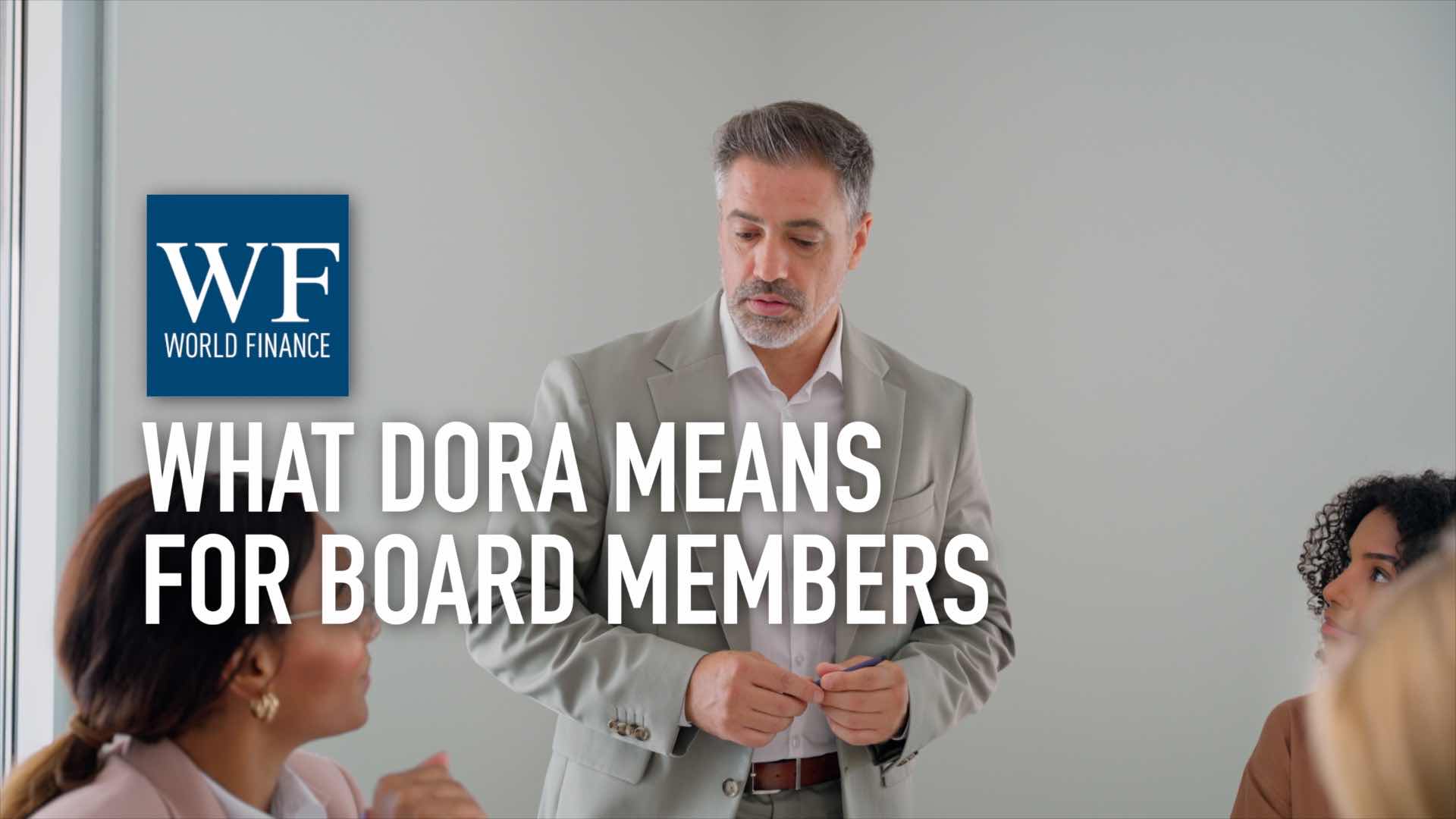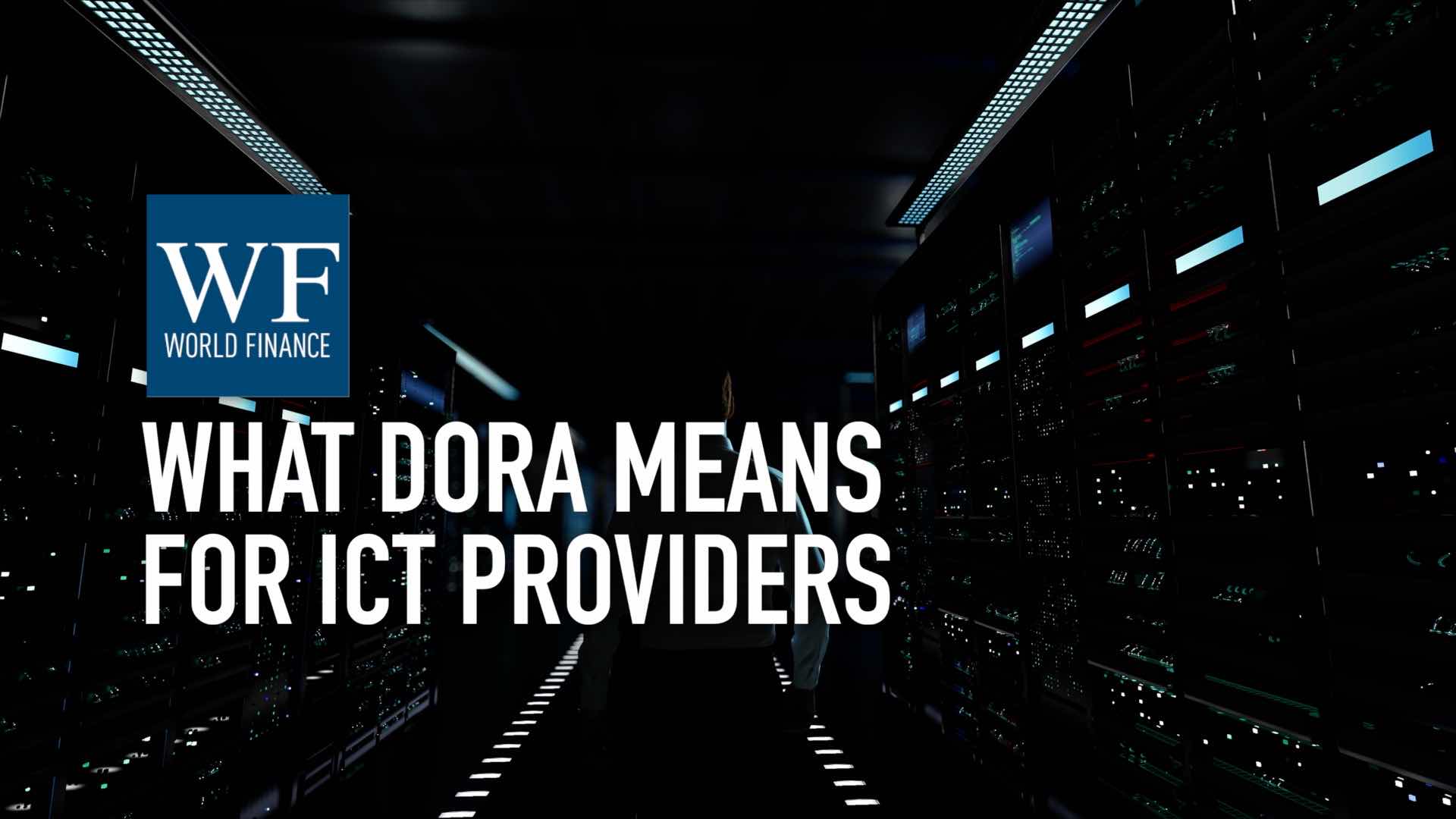Is the US economy ready to end QE? | Felaban 2014 | Video
From the conference floor of Felaban 2014 in Medellin, Colombia, World Finance speaks to Randall Kroszner, former governer of the US Federal Reserve
Related:
Transcript
As the US prepares to end its monetary easing programme, what potential financial stresses should the federal government keep an eye on? Former Fed governor Randal Kroszner talks unemployment, manufacturing and the tricky question of whether the US people have confidence to invest again.
As the US prepares to end its quantitative easing program, many question what is going to happen to the economy in the days, months, years to come. Former governor of the fed reserve Randall Kroszner joins me now. Thank you so much for joining me today.
World Finance: So as I said, what is going to happen, do you think the US is really ready to end this program?
Randall Kroszner: Well I think the fed felt that there had been enough progress in the labour market. The US economy was sturdy enough to stop the additional asset purchases. We have to remember that the fed’s balance sheet is now $4.5tn. It had been $800bn, so it’s dramatically larger. Even though they’re not purchasing more asset, they’re still providing a lot of support for the economy.
World Finance: Absolutely. Now you were in charge when the 2008 financial crisis hit. Bernanke, many say, was quick to respond. Do you think that he put in the measures that needed to be taken at that time?
Randall Kroszner: We tried to act very quickly. One of the things that really haunted us was what happened in the 1930s when the shocks came and the fed did nothing. Milton Friedman, one of the great University of Chicago economists, had said that the depression became the Great Depression because the fed didn’t act, and so we were certainly not going to make that mistake. We undertook a lot of programs to avoid a deflation, avoid a repeat of the Great Depression. Was everything perfect? Certainly not. But did we avoid the worst outcomes? I think we did a reasonably good job.
World Finance: Do you think the labour market was hit too hard by the measures that were put in place?
Randall Kroszner: We were trying to provide support for the economy and for the labour markets. The shocks hit very hard across large and small financial institutions, people who owned homes, and in the US the main savings vehicle for people are their homes and they fell dramatically in value, so consumption was down, and it was a challenge overall. So we’ve had a slow recovery, but we’ve had a steady one. It hasn’t been as robust as we would like, but fortunately it’s been a bit stronger than many other major countries around the world.
World Finance: So do you think that the US labour market is now poised to continue the slow but steady growth that we have been seeing?
Randall Kroszner: So I think that’s likely. There could be so many shocks that come in, there are so many geo-political uncertainties, whether it’s the Middle East or the Ukraine. We see what happened Vladimir Putin storming out of the G20. That doesn’t suggest that everyone’s working perfectly together. So there are lot of risks out there, but if there’s no major shock that comes in, it’s likely that the labour market will continue to recover, but we’ve still got a long way to go. There are a lot of people who are not in the labour force who would like a job, there are a lot of people working part time that would prefer to be full time.
World Finance: The precarious balance that we face right now, a lot of focus has been on what is it going to do to the wider economy? But as you and I know, a lot of American money that comes in is fuelled by a stable currency, but the currency rising, what is that going to do to manufacturers who rely very heavily on exports?
Randall Kroszner: We’ve had a lot of productivity growth in manufacturing in the US over time, and I think the manufacturing sector in the US will be reasonably robust to these changes in the exchange rate. The main challenge is going to be weak demand in much of the rest of the world.
World Finance: How do you think the US can stave off the impact of that in addition to the end of the monetary stimulus programs?
Randall Kroszner: So it’s challenging times, and as I mentioned, there could be a lot of geo-political shocks that come in. But it seems that there’s a gradual restoration of confidence, a gradual willingness to hire and hire full-time rather than part-time, although we still haven’t made as much progress there as we would like, and as those trends continue we should be on a reasonable path, not an incredibly robust path. The US is much less of a manufacturing economy than it once was, so we’re not as dependent upon manufacturing in our core growth, but it’s still an important contributor.
World Finance: Do you think we’re looking at a different USA, different qualitatively in terms of the mood, the willingness, risk projections. Do you think that people are really ready to take that next step to invest, to buy homes, that sort of thing?
Randall Kroszner: I think that’s a very important point, because there’s a lot of uncertainty, particularly on the fiscal side. People are not quite sure what taxes are going to look like, they’re not quite sure what the level of government expenditures are going to be, and we haven’t really lifted that cloud of fiscal uncertainty either in the short run or the long run, and that’s something that’s really been holding back investment, particularly by firms.
If firms aren’t investing, they’re not going to be hiring as much, and if they’re not hiring as much and they’re not giving the capital goods for the workers to work with, we’re not going to see wage growth to be that strong, so I think that’s the major gap in US policy right now, is that fiscal uncertainty both in the short and long run.
World Finance: And what impact is political divisions going to play in the future of the US economic system?
Randall Kroszner: If we’re optimists, we could say well this is what happens in the last few years of the Clinton administration, a Democratic president, Republican congress, and they actually got a lot of things done.
I’m not as optimistic now to be able to restore that kind of working together relationship, but I think both the Republicans as well as President Obama want to get some things done, and I think we’ll be able to make at least some progress on some small things. I don’t think the big issues related to fiscal uncertainty, the long term unsustainability of our spending trajectory, that’s not going to be resolved before the next presidential election, but I’m hopeful that we can make some contributions. We’ll see.
Basically, if we can get a few small things done that will be a good sign, but if by the end of the year we can’t get anything done, then unfortunately it’s going to be business as usual.

 What the Digital Operational Resilience Act means for board members and CEOs
What the Digital Operational Resilience Act means for board members and CEOs What the Digital Operational Resilience Act means for third party ICT providers
What the Digital Operational Resilience Act means for third party ICT providers
